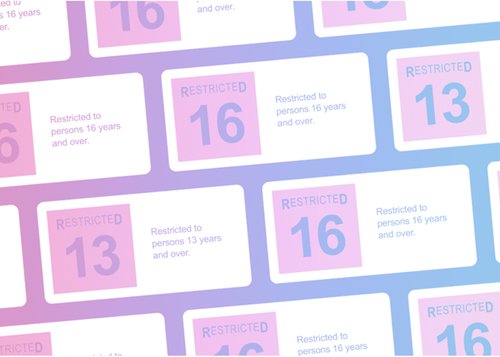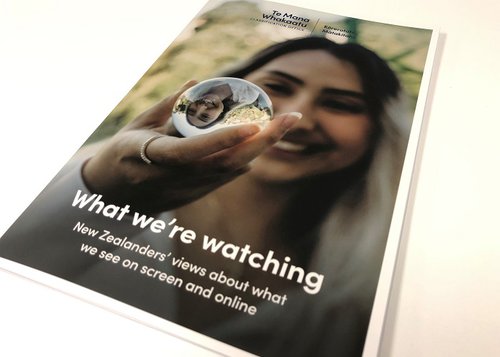What we’re watching – New Zealanders’ views about what we see on screen and online
Our latest research shows that New Zealanders think harmful content on screen and online is a real problem, whether for themselves, their loved ones, or the wider community.
The research What we're watching: New Zealanders' views about what we see on screen and online provides insights from a nationally representative survey of 1,201 people aged 16 years and over. Here are the key findings:
New Zealanders are concerned about children and young people seeing harmful content
There is widespread concern about children and young people seeing harmful content – whether in movies and shows, video games, or on social media or other websites. The highest levels of concern are related to content in online spaces.
Most New Zealanders believe that content can have a negative influence on children and young people in various ways, from their emotional wellbeing and mental health to attitudes about suicide, violence, or sex and relationships.
But New Zealanders obviously see that such content can have positive or negative effects depending on what the content and context is. For example, people see that content can have both positive and negative influences in relation to ‘attitudes towards people who are different to them’, and ‘attitudes about sex and relationships’.
Most think it’s hard to protect our kids online
Most New Zealanders think it’s hard to protect children from inappropriate or harmful online content.
Families use various tools to help them manage kids’ access to content, including age ratings and parental controls. Parents and caregivers think that age ratings and content warnings are particularly useful in this area.
Asked about their own knowledge of online safety, a majority felt they personally know enough to help their whānau stay safe online, although relatively few felt highly confident about this.
It’s common for people of all ages to see harmful content online
Harmful online content can be hard to avoid, regardless of someone’s age. This is a common experience for New Zealanders – 42% agreed it was hard for them to avoid seeing harmful or offensive content online, while 27% disagreed.
Many New Zealanders had seen online content that promotes or encourages harmful attitudes or behaviours. This can include content that encourages racism, sexism, misogyny, hatred or extremism.
One in three had seen content that directly promotes or encourages violence towards others. This includes violence towards others based on things such as race, culture, religion, sexuality or gender, and violent extremism or terrorism. One in five had seen content that encourages some form of self-harming behaviour, such as suicide, self-harm, and eating disorders such as anorexia or bulimia.
Asked about the impact of content on themselves, their families and their communities, some talked about the significant distress they personally had experienced, while others talked about the impact they had seen on friends and loved ones.
New Zealanders support regulation of harmful online content
There is widespread support among New Zealanders for regulating harmful content. However, only a minority think the current regulatory system is working well to keep young people safe from harmful content online.
People also lack confidence in tech companies to keep them safe. Just 33% ‘somewhat’ or ‘strongly’ agreed that online platforms provide what people need to keep them safe.
Asked about what more could be done to help keep themselves and their whānau safe online, people talked about the importance of:
- stronger and better regulation
- better education, information and support
- improved technical solutions and tools
- the need for tech/social media companies to do more.
Help information
This research deals with some difficult topics. If you’re feeling anxious, uncomfortable, or overwhelmed, try talking it through with trusted friends or whānau – or you can free call or text 1737 for more support.
Subscribe to our news
Stay up to date with news from the Classification Office.


